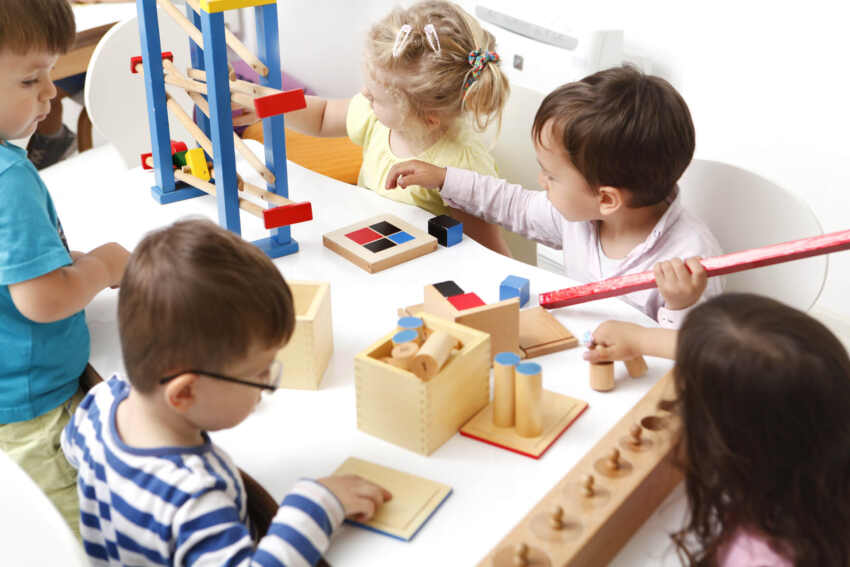The Montessori approach to education emphasizes hands-on learning and encourages children to explore and develop their skills at their own pace
The Montessori approach to education emphasizes hands-on learning and encourages children to explore and develop their skills at their own pace. In the area of mathematics, measurement activities play a vital role in fostering development and understanding of various concepts. Let’s take a closer look at some engaging measurement activities that you might find in a Montessori classroom.
1. Measuring with Non-Standard Units
In the early stages of learning measurement, Montessori classrooms often introduce non-standard units of measurement. Children use objects such as blocks, paper clips, or straws to measure the length, width, or height of different objects. This activity helps develop their spatial awareness and introduces the concept of units of measurement.
2. Measurement with Standard Units
As children progress, they are introduced to standard units of measurement such as meters, centimeters, grams, or kilograms. Montessori classrooms provide various tools such as rulers, scales, or measuring tapes for children to practice measuring different objects using these units. This activity helps children understand the concept of precision and accuracy in measurement.
3. Measuring Volume with Water
Montessori classrooms often incorporate practical life activities into their measurement lessons. One popular activity is measuring volume using water. Children are provided with different containers of various shapes and sizes and are encouraged to transfer water from one container to another, comparing and measuring the volume. This activity not only helps develop measurement skills but also enhances fine motor coordination.
4. Estimation Activities
Estimation activities are a valuable part of measurement lessons in the Montessori classroom. Children are presented with different objects and asked to estimate their length, weight, or capacity before actually measuring them. This activity helps build their critical thinking and reasoning skills, as well as their ability to make educated guesses based on their prior knowledge.
5. Measuring Time
Time measurement is an essential skill, and Montessori classrooms often provide various activities to help children understand and practice this concept. Children learn about the different units of time, such as seconds, minutes, or hours, and are encouraged to use timers or clocks to measure specific intervals. This activity not only develops their understanding of time but also enhances their time management skills.
6. Measuring Weight
Measuring weight is another crucial skill that children learn in the Montessori classroom. They are introduced to different weighing scales and are encouraged to measure the weight of different objects. This activity helps children understand the concept of mass and develops their ability to compare and order objects based on weight.
7. Measuring Temperature
Montessori classrooms often incorporate scientific exploration into their measurement activities. Children are introduced to thermometers and are encouraged to measure and compare temperatures of different objects or environments. This activity helps develop their understanding of the concept of temperature and allows them to apply their measurement skills in a practical context.
Measurement activities in the Montessori classroom play a crucial role in developing children’s understanding of various mathematical concepts. Through engaging hands-on activities, children learn to explore, estimate, and measure different quantities, developing their critical thinking, reasoning, and problem-solving skills. These measurement activities also promote the development of fine motor coordination and enhance children’s ability to make educated guesses and accurate measurements. By incorporating measurement activities into the Montessori curriculum, children are provided with a solid foundation in mathematics and are prepared for future academic success.
Nidhin
For More Details Call: +917510220582

